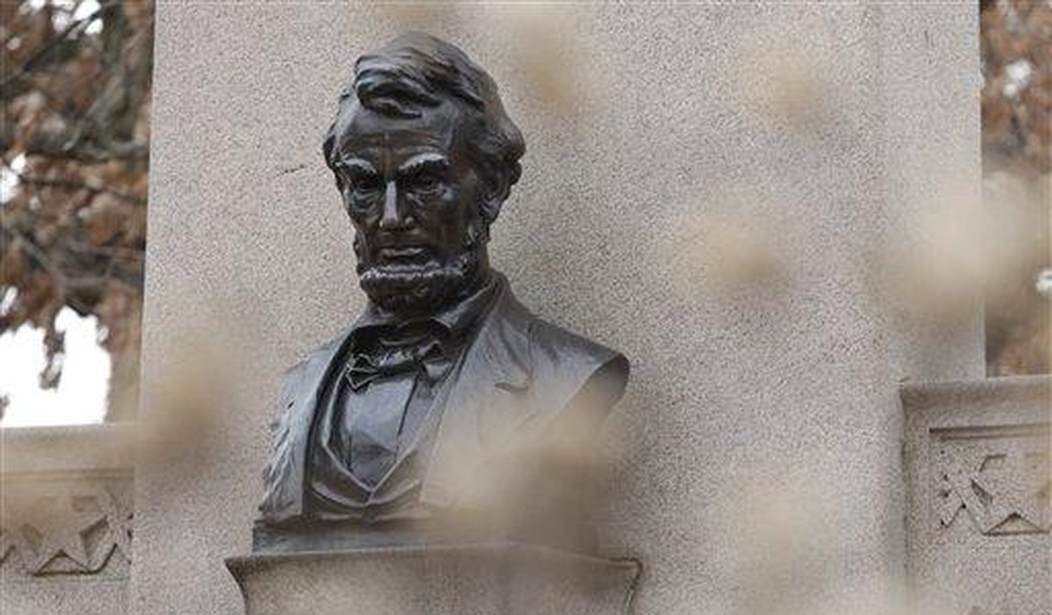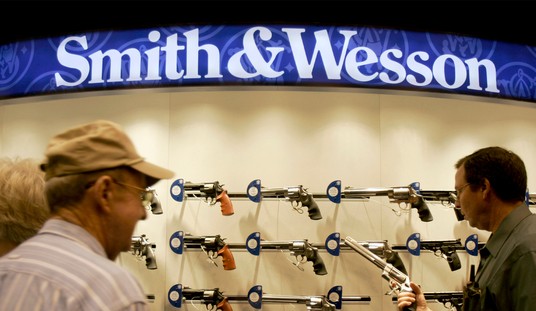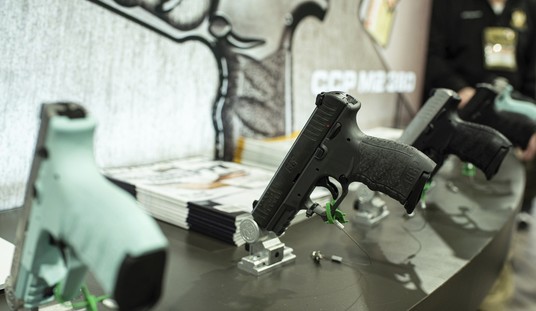I’ll state up front that I don’t think there’s going to be a full-blown civil war in the United States in the next few years, but if I’m wrong I’m going to be pointing at least one finger at the media, which seems intent on hyping up the possibility as much as possible (not to mention egging it on whenever it can).
I’m sure by now you’ve seen at least a story or two on the new survey that found half of Americans think we’re headed for a civil war in the coming years, but what you might not have realized is that the new survey comes from an old school gun control activist. Dr. Garen Wintemute is the head of the UC Davis Violence Prevention Research Program and the California Firearm Violence Research Center, and I think he put this survey together to try to use the threat of civil unrest (or worse) to promote more restrictions on the right to keep and bear arms; an act that, frankly, would only make things worse.
But how bad are they really? While most of the headlines have breathlessly screamed that half the country thinks we’re going to war with ourselves, the survey results actually show that the vast majority of us aren’t convinced that’s our future.
Before we get to what the data shows, however, let’s take a look at how the media’s been reporting on this survey; more specifically the gun control media. The Trace’s Will Van Zant had a big write up on Wintemute’s survey this week, and his coverage makes clear that the gun control lobby wants to tie in fears of political violence with the rise in lawful gun ownership. Here’s a sample:
Although the threat of political violence is most acute from the right, Kleinfeld said in an interview that the Davis study suggested a “strong latent desire on the left” for militancy. She cited a rise in gun purchases by women and non-whites and the study’s finding that more than a third of Americans feel that political violence is sometimes justified to “prevent discrimination based on race or ethnicity.”
Garen Wintemute, an emergency physician, longtime gun violence researcher, and a lead author of the study, agreed that initial findings suggested an openness to violence is not confined to one end of the political spectrum. “What do you think is going to happen when armed voter suppression meets armed voter support? Where does that go?” he said. “This is not crazy talk, it’s entirely plausible.” Nearly 20 million people, the study found, believe that violence is at least sometimes justified, “to stop those who do not share their beliefs from voting.”
He cautioned that the findings left key questions unanswered, pointing to the widespread expectation of civil war. “What I would really like to know is whether that’s a good thing or a bad thing,” he said, “are you pushing for civil war, or do you view that prospect as a disaster?”
Wintemute said he hopes to convene focus-groups to explore why people gave the answers they did. A finer analysis of the results is also planned, he said, that will tally responses by an array of categories — determining, for instance, how many of those who expressed belief in QAnon also expect to soon be armed with a gun while committing political violence.
Wintemute described the survey as a “mirror” and “a way for the country to see itself.” Even some members of his research team had trouble accepting the findings, Wintemute said, which he knows some may view as alarmist. “This is not fear-mongering,” he said. “I want readers to engage directly with the results, which are not about us, they are about them.”
The raw data might not amount to fearmongering in and of itself, but a lot of the reporting around it has been, and I haven’t seen Wintemute trying to push back at all. So let’s look at the numbers, or at least the information that Wintemute and his team released. I haven’t been able to find the crosstabs or a breakdown of responses by different demographics, but even a look at the topline results shows that the media is hyping up the fears of a civil war.
First off, the authors admit that of the more than 15,000 people contacted for the survey only about 56% completed all of the questions, and those who did “were older and more frequently white, non-Hispanic; were more often married; had higher education and income; and were less likely to be working” than those who did not. We’re already not looking at a representative sample of the country, which is worth keeping in mind when looking at what this particular group had to say.
As to their thoughts on an impending civil war, it’s true that almost 50% at least somewhat agreed that there will be a civil war in the next few years, but most of that number comes from those who only agree “somewhat”.

“Half the country thinks we’re headed for civil war” is a much better headline than “14% of country certain of civil war”, wouldn’t you say? Not more accurate necessarily, but much certainly more clickworthy.
14% isn’t an insignificant figure, although it’s smaller than the number of Americans who believe in Bigfoot, according to a 2014 survey. And honestly, I’m not surprised that roughly 1/3rd of the country at least agrees that it could be a possibility. After the insanity of the past couple of years, I’m pretty sure that roughly the same number of Americans would agree that it’s at least somewhat likely we’ll be subject to a full-scale alien invasion in the next few years as well. The fact that 2/3rds of the poll’s respondents agreed that there is a “serious” threat to democracy seems much more significant to me, because it shows that there’s a very broad concern among Americans about the current state of the nation. Most of don’t think it’s certain to end in a civil war, but I do think many of us are worried about where we’re headed.
I’m also not convinced that the survey’s finding about the acceptability of political violence has as much significance as the authors and the media have suggested. According to the survey, for instance, 3.4% of respondents (who Wintemute, et al extrapolate to represent the views of more than 9-million American adults) believe it is “always justified” to use violence to “return Donald Trump to the presidency this year” [emphasis added]. Do we see any evidence that 9-million people are actively trying to use force or political violence to install Trump in the White House right now? Seems like that would be kind of hard to keep hidden, doesn’t it?
Even taking the survey at face value, however, the vast majority of respondents said it was never acceptable to use force or political violence in any of the circumstances they were asked about; from “stopping an election from being stolen” (73.6% “never justified”) to “stop people who do not share my beliefs from voting” (91.8% “never justified). In fact, the most acceptable reasons to use force or political violence among survey respondents don’t really involve politics at all. Just 62.7% said that force or violence is never justified to “prevent discrimination based on race or ethnicity,” and only 60.5% said the same when it came to opposing “the government when it tries to take private land for public purposes.”
Are there fringes on either end of the political spectrum willing and ready to wage war on their fellow Americans? Undoubtably. But I just don’t think Wintemute’s data matches up with our reality, which is troubling enough without the need to falsely add to our fears and uncertainty about the future.
While the survey itself doesn’t recommend any policy recommendations, gun control groups will most certainly be using Wintemute’s data to push for more gun control laws in the name of “preserving democracy” or some twaddle like that. Politicians and anti-gun activists proclaiming that we can only save the Constitution by ignoring the Second Amendment are only going to generate even more societal friction, unfortunately, but with Democrats trying to rally their base into showing up at the polls this November, scare tactics like these are going to become more frequently deployed the closer we get to Election Day.








